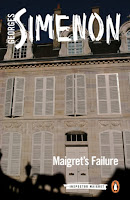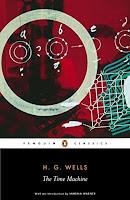Love, life, and other events affecting the congregants of St Basil's church in London.
Book Review: An Unsuitable Attachment was my introduction to Barbara Pym (1913-80); I hadn't realized it was posthumous -- apparently written in 1963. My read felt like a light mix of Spark, Waugh, and the overlooked Sarah Caudwell. Pym's work didn't really resemble Jane Austen, as had been suggested. For me Austen's novels have an underlying sense of desperation that if things don't work out characters will end up dispossessed and poverty-stricken. Not so here. In Pym's world if a woman doesn't find a man she might be better off as the men are mostly dweebs and duds. If Ianthe doesn't find love she'll be quite happy in her lovely little house with the perfect furniture in her community of well-upholstered minds. Many of the characters are prickly, judgmental, controlling, critical, manipulative. When they're not, they're oblivious and lacking self-awareness. Even our heroine constantly criticizes her best friend for not acting as a vicar's wife should (as if that's a negative). There's much emphasis on being a "gentlewoman," whatever that is. I did enjoy An Unsuitable Attachment despite my carping. Entertaining, humorous (very arch), with interesting situations and I'd read more by Pym, especially since I have a couple of her books still sitting on my shelf. Her characters, including one of the better cat ladies around, can carry the day. The core of the story is the conflict with being bound by custom or the judgment of the group. As with Austen the correct choice is to choose love. The "unsuitable attachment" is first presented as choosing a partner of whom others don't approve, but the real unsuitable attachment is that of clinging to the past, an attachment to the conventions of culture, the unwritten rules of society, or being guided by the opinions of others, those others often long dead. This isn't exactly curing cancer or dying for one's country, but that's not this book. In An Unsuitable Attachment emotions aren't too deep or too strong, though there are the occasional tears. This is a mild and gentle story, nothing too extreme, comfortably cozy. [3★]











